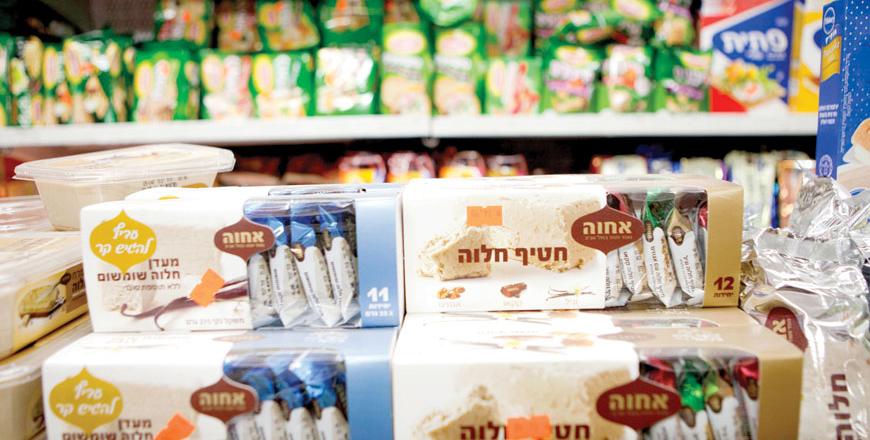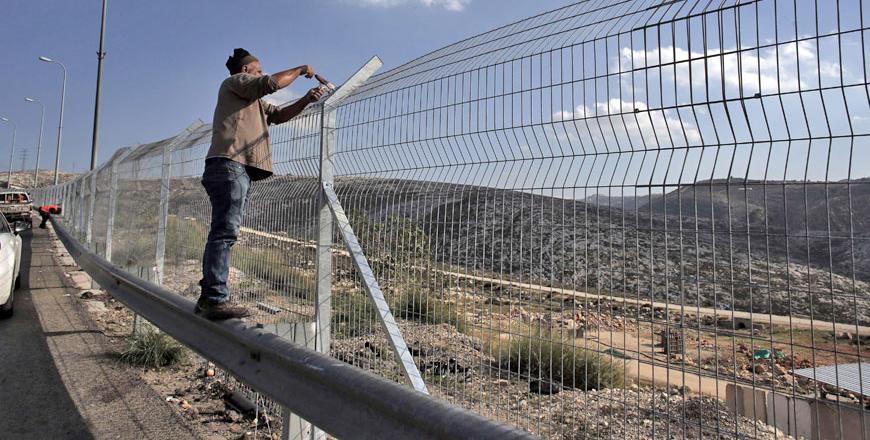You are here
Israel fumes over planned EU labelling of settlement products
By Reuters - Nov 10,2015 - Last updated at Nov 10,2015
TEL AVIV — Few issues have caused more friction between Israel and the European Union than EU plans to impose labelling on goods produced in Jewish settlements on occupied land. And if Israel is right about the timing, the tensions could get worse.
The European Commission, the EU’s executive, is keeping tight-lipped about when the labelling measures will be approved.
But Israeli officials are convinced it will happen at a meeting in Brussels on Wednesday and are doing all they can to lobby against it. US senators have written to the EU’s foreign policy chief urging her not to go ahead with the move.
“This is a discriminatory policy,” Energy Minister Yuval Steinitz said on Tuesday, a common Israeli refrain. “We all remember when Jewish products were last labelled in Europe,” he said, referring to Nazi Germany’s “anti-Semitic” policies.
The EU does not recognise Israel’s occupation of the West Bank, Gaza, East Jerusalem and the Golan Heights, lands it occupied in the 1967 Middle East war, and says the labelling policy aims to distinguish between goods made inside the internationally accepted borders of Israel and those made outside.
“It’s an indication of origin, not a warning label,” the EU ambassador to Israel, Lars Faaborg-Andersen, told Reuters.
Some EU countries already affix labels to Israeli goods, differentiating between those from Israel and those, particularly fruits and vegetables, that come from the Jordan Valley in the occupied West Bank. If the Commission goes ahead on Wednesday, all 28 member states would have to apply labels.
Asked repeatedly about the timing of the decision by European lawmakers on Tuesday in Brussels, the EU’s envoy to the Middle East, Fernando Gentilini declined to comment, saying only: “It is in the pipeline, it is coming.”
Gentilini sought to play down the guidelines during the hearing at the European Parliament’s Foreign Affairs Committee. “It is not a boycott on the country... It is about implementation of EU legislation. It is nothing new, it is for things that already exist,” he said.
From an economic point of view, the effect may be minimal. Consumers that want to avoid Israeli settlement goods probably already do so. Those who want to actively support Israel may now seek out settlement products to buy.
Israel’s Economy Ministry estimates the impact will be about $50 million a year, affecting fresh produce such as grapes and dates, wine, poultry, honey, olive oil and cosmetics.
That is around a fifth of the $200-$300 million worth of goods produced in settlements each year, but a drop in the ocean next to the $30 billion of goods and services Israel exports to the EU annually, a third of all its exports.
Israeli ministers have cast the EU’s plans as akin to a boycott of Israel, regarding it as little different to the boycott, sanctions and divestment movement that Palestinians — who seek a state on occupied land including the West Bank and East Jerusalem — have advocated in recent years.
The World Bank estimated in 2013 that easing restrictions on Palestinian activity and production in areas under full Israeli military occupation would add $3.4 billion a year to the Palestinian economy, boosting opportunities. Most of these restrictions are in place to protect Israeli settlements.
Related Articles
BRUSSELS/OCCUPIED JERUSALEM — The European Union published new guidelines on Wednesday for labelling products made in Israeli settlements, a
OCCUPIED JERUSALEM — Israel said on Sunday it was suspending contacts with European Union bodies involved in peace efforts with the Palestin
OSLO — Israel on Saturday condemned Norway's decision to label products from Israeli settlements with their place of origin.A statement from


















